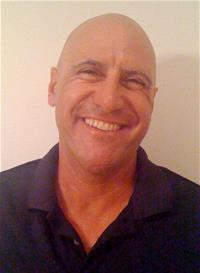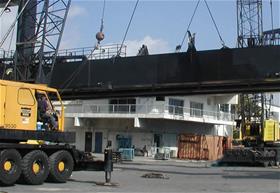CCO Operator Profiles - Matthew Bozza
 Matthew Bozza has been CCO certified since 1996 and is currently certified to run all four categories of mobile cranes. He started operating cranes when he was 19, while working with New Jersey I.U.O.E. Local 825. Initially he was shown how to perform simple tasks by old-school operators, and he gradually learned more complex tasks such as setting iron, driving piles, and pouring concrete for high-rises and parking garages.
Matthew Bozza has been CCO certified since 1996 and is currently certified to run all four categories of mobile cranes. He started operating cranes when he was 19, while working with New Jersey I.U.O.E. Local 825. Initially he was shown how to perform simple tasks by old-school operators, and he gradually learned more complex tasks such as setting iron, driving piles, and pouring concrete for high-rises and parking garages.
Although he had enough experience to get his long-boom license in New Jersey, when NCCCO’s national certification became available he received formal classroom and practical training through the union before taking his certification exams. This training taught him the proper use—and importance—of a crane’s load charts. “Although computers can help, incorrect use of load charts—or lack thereof—is what turns cranes over,” he says. "Using the load charts correctly can make the difference between a safe and an unsafe lift.”
Of Matt’s 25 years of experience as an operator, the last 10 have been with Sims Crane and Equipment in Port Everglades, Florida. Now working out of I.U.O.E. Local 487, he runs a 220-ton American and other conventional and hydraulic cranes at the port, one of the busiest in the Southeast. Once Florida’s construction industry started to slow down, having CCO certification made all the difference between working and not working because, he says, “The best people have CCO certification.” To preserve Sims’s reputation as a safe, reliable crane provider, the company now requires that all of its operators be CCO certified.

“I learned how to calculate complex and multiple-crane lifts as part of my CCO certification training,” Matt says. So through it all he has stayed busy, whether it’s helping build, maintain, and repair state-of-the-art cruise ships, lifting giant anchors and anchor chains, stocking equipment and supplies, or performing specialty, multi-crane lifts required to load very large, heavy loads onto ships, such as a locomotive, parts for a nuclear power plant, or multi-million dollar yachts. These specialty lifts involve huge liabilities and therefore require careful planning, complex math, and precision lifting, all skills his CCO certification has validated. “Obtaining my CCO crane operator certification has made me a safer operator by making me and those around me more aware of the risks at hand before a critical lift is attempted.”
He concludes, “In today’s age, it’s not just about being able to run a crane; it’s knowing all the factors in making the picks, including the setup, rigging, ground conditions, and the right materials for the job. I would recommend CCO certification to my supervisors and co-workers because if everyone involved with a critical lift is knowledgeable of the safety factors and components of a lift, it makes it easier for them to stay safe and out of harm’s way during the lift and throughout the job.”
When not working, Matt likes to hunt, SCUBA dive, ride his motorcycle, and train in martial arts.